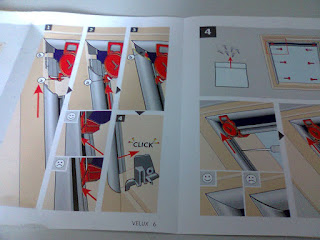<rant>But what it is is "enabling technology" – a Good Thing, I suppose. Gutenberg...
I blame the desktop publishing software ("DTP"). When I was at OUP, many moons ago, all was right (recto) with the world. A recto was, as the name suggests, a right-hand page; and on its back, as the name suggests, was a verso. Page numbering started at 1 (or i in prelims, if you were old enough to be fussy about that stuff) on a recto. Except that, as it was the title page, or the first page of text – in either case a display page – it had no page number (or folio, if you're toeing the Hart's Rules line). A satisfying mixture of Latin, arbitrary rules, and even more arbitrary exceptions, made publishing workers feel special, acolytes in an arcane priesthood.
Then along came DTP, and any Thomasina, Ricarda, or Harriet had the keys to the tabernacle of editorial arcana; they started spraying page numbers around willy-nilly as if there were no rul... Well, I suppose there aren't any more...
<meta-rant>...rules, that is.
(and that's another thing; "any more" as one word)
</meta-rant>
<meta-rant></rant>
(and that's another 'nother thing; automatic hyphenation. The-/rapist, ency-/clopedia, leg-/end, te-/aching; who writes these misbegotten algorithms? Why not spend some time doing it manually... thoughtfully before dreaming up a bit of software that's guaranteed to go on getting it wrong until Hell freezes over?)
</meta-rant>
<parenthesis>...revolutionized the means of disseminating information in the fifteenth century. This put the power to spread the word in the hands of anyone who had access to a printing press (whereas previously – in the West, at least – that power had been in the hands of the Church, so that there were strict limitations on what that Word could be). The Church was understandably annoyed at this encroachment on their monopoly, and argued strongly that such empowerment was a Bad Thing. (Rightly; there do have to be standards; there do have to be rules to prevent perversions of justice. But the Pope doesn't have to brandish his imprimatur ...
(or Gänsfleisch, to give him his proper name:
According to Heinrich Wallau, writing in The Catholic Encyclopedia:
Gutenberg was the son of Friele (Friedrich) Gänsfleisch and Else Wyrich. His cognomen was derived from the house inhabited by his father and his paternal ancestors "zu Laden, zu Gutenberg". The house of Gänsfleisch was one of the patrician families of the town, tracing its lineage back to the thirteenth century."So, as I said here.
Johannes was as much Johannes Gutenberg as Leonard Woolf was Leonard Hogarth (whose business just took its name from Hogarth House))
</parenthesis>
<etymological-note>
and trust Holy Mother Chorch. as Father Steven used to say in my history classes, to hide the agent of a ruling behind the passive voice and in an obscure language: "it may be printed".
</etymological-note>... like a spoilt teenager, just because).
So, going back to my opening rant, you may have noticed that I used the metaphor priesthood. So where does that put me in the case of the Church and Gutenberg? I have to admit, through clenched teeth, that DTP was a Good Thing. (That doesn't mean. though, that I find its giving power to the people comfortable.
<inline-PS>
My feelings on seeing an odd page number on a left-hand page, when someone's cutNpasted from a published source and then re-paginated ...
<rant rejoinder= "Eppur si muove">
(without having the common courtesy to add blank pages to keep the spreads right)
</rant>
... need have no repercussions in the real world, however violent they may be.
</inline-PS>
)
Enough for now.
b
Update: 2020.06.2912:05 – Added inline PS.




 They
They 









